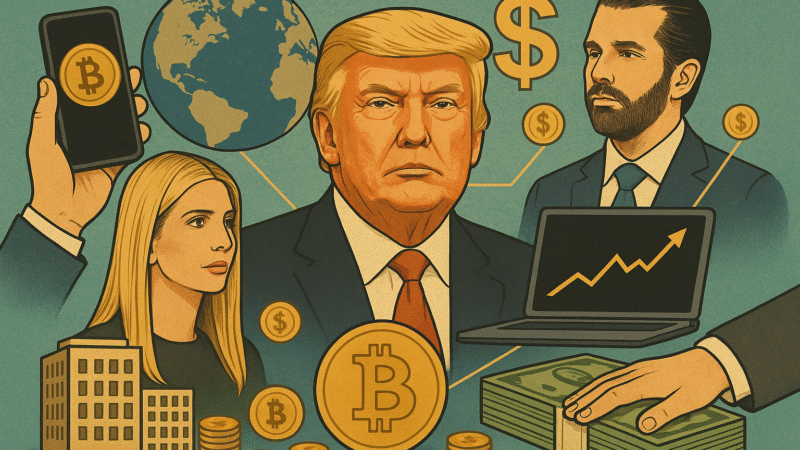ICE Dallas Attack, UNGA Tensions, Argentina US Backing And TikTok Sale Dynamics
Introduction
On a quiet day in Dallas, tragedy struck when a gunman opened fire at an Immigration and Customs Enforcement office, killing one person, injuring two others, and then taking his own life. The assailant reportedly left the message “ANTI‑ICE” on an unused bullet, signaling a politically charged motive or at least ideological symbolism.
This violent act resonates far beyond the immediate victims. It taps into deep fissures in U.S. immigration debates, the policing of border enforcement, and perceptions of federal authority. ICE has long been a lightning rod in American politics: advocates view it as enforcing immigration law, while critics see it as overreaching, aggressive, and lacking accountability. This incident adds a new chapter of violence to an already fraught discourse.
U.N. General Assembly: Fractures, Alliances, And AI In Warfare
At the United Nations General Assembly, the global stage witnessed intense, sometimes confrontational rhetoric. Among the most prominent voices was Ukraine’s President Volodymyr Zelenskiy, who delivered dire warnings about fraying global alliances and the specter of AI‑driven arms races.
Zelenskiy’s intervention reflects Ukraine’s continuing efforts to keep global attention focused on its conflict with Russia while also elevating the discussion to strategic, technological fronts. The idea of AI weapons including autonomous drones, decision systems, and cyberweapons is increasingly moving from speculative fiction to strategic urgency. Alliances such as NATO and broader coalitions depend not just on promises but on shared norms, burdens, and credibility. When nations waver or are perceived to waver, others may lose confidence in collective defense.
Debates at the U.N. also touched on climate, development, and global governance. Some nations pushed for renewed climate commitments, calling out laggards and urging stronger enforcement of pledges. Others focused on financial crises, debt burdens in developing countries, and the need for reform in global institutions.
Yet the structural reality is that the U.N. remains more a forum of speeches than binding action. States guard sovereignty fiercely, and enforcement mechanisms are weak. The question remains whether summits can catalyze real change or simply reflect the status quo’s deep divides.
Argentina’s U.S. Lifeline: Political Stakes And Economic Leverage
In Buenos Aires, President Javier Milei secured a substantial financial lifeline from the United States, injecting momentum into his reform agenda ahead of upcoming elections.
Argentina has repeatedly experienced economic turbulence including inflation, debt crises, currency instability, and political volatility. For Milei, whose free-market, reformist platform is controversial, American backing offers both legitimacy and resources. The lifeline may come in forms of investment, loans, guarantees, or preferential access, each carrying strategic leverage.
Domestically, opponents may cast the deal as external intervention or overdependence. The question is whether the funds stabilize markets, attract private capital, or backfire by stoking public resentment over foreign influence. On the international stage, U.S. support signals geopolitical ambition, while Latin America remains a terrain of influence for Washington, Beijing, and other powers.
TikTok And Trump: Ordering The Sale Of U.S. Operations
President Donald Trump plans to sign an executive order compelling the sale of TikTok’s U.S. operations to Oracle and Silver Lake. TikTok, the Chinese-owned short video platform, has long been politically contentious in the U.S. Critics argue it poses national security risks related to data flows, algorithms, and potential interference, while supporters counter that it is a cultural phenomenon and argue against censorship.
The prospective executive order raises legal and strategic questions regarding the U.S. government’s authority to force such a sale. Courts may challenge it as overreach or protectionist, while the company’s Chinese parent could respond diplomatically or legally. From a market perspective, the transaction would reshape the media and tech landscape, giving the acquiring companies control over one of the most popular social platforms in the U.S., with influence over content moderation and data management.
Strategically, this move signals how tech, national security, and geopolitics are increasingly intertwined. Control over digital platforms is no longer just business—it is a form of power with global ramifications.
Intersections And Implications
These storylines—the Dallas shooting, U.N. diplomacy, Argentina’s financial lifeline, and the TikTok divestment—reflect overlapping dynamics: ideology meets violence, governance meets technology, and geopolitics meets markets.
Domestic Turbulence in a Polarized U.S.
The ICE shooting underscores deep polarization in the U.S., including lethal violence. Coupled with federal budget uncertainties and battles over executive power, it illustrates a system under strain. Leaders face pressure to ensure security, legitimacy, and order.
Tech Sovereignty as a Geopolitical Battleground
The push to force TikTok’s U.S. sale is part of a broader pattern of states asserting digital sovereignty over platforms, data, and algorithms. This is a contest over influence and information flow where regulation, censorship, and national security boundaries blur.
Fragile Global Alliances
At the U.N., states voiced concern over alliances fraying amid shifting global threats like climate change, artificial intelligence, and cyber warfare. Smaller states are especially vulnerable to indecision or inaction by major powers, which can amplify distrust.
Economic Leverage as Influence
The U.S. financial support to Argentina highlights that economic assistance remains a powerful tool of influence. Loans, investments, and aid can stabilize economies but may also generate debates over sovereignty and external control.
The Risk of Overreach
Across these dimensions lies a shared risk: overreach. Whether in domestic enforcement, executive orders on tech, or diplomatic financial interventions, pushing too far can generate backlash. Legal systems, public opinion, institutional checks, and international law all act as counterweights.
Path Forward: What To Watch?
Investigations into the Dallas shooting will examine the shooter’s motives, background, and systemic security gaps.
Legal challenges over the TikTok executive order may test constitutional limits of executive power.
Argentina’s economic trajectory will indicate whether U.S. support stabilizes markets or increases dependency.
Implementation of U.N. commitments will determine if pledges lead to real action on climate, AI regulation, and security.
Other countries may follow cues from the U.S. in asserting control over technology platforms, data, and content.
Conclusion
This collection of events provides a lens into contemporary global dynamics, where violence, governance, technology, and geopolitics collide. The Dallas shooting is a tragic flashpoint, the U.N. assembly reflects strategic fragility, Argentina’s deal illustrates influence through capital, and the TikTok order exemplifies control in cyberspace. The responses of governments, institutions, and societies will shape the contours of power in the years to come.



